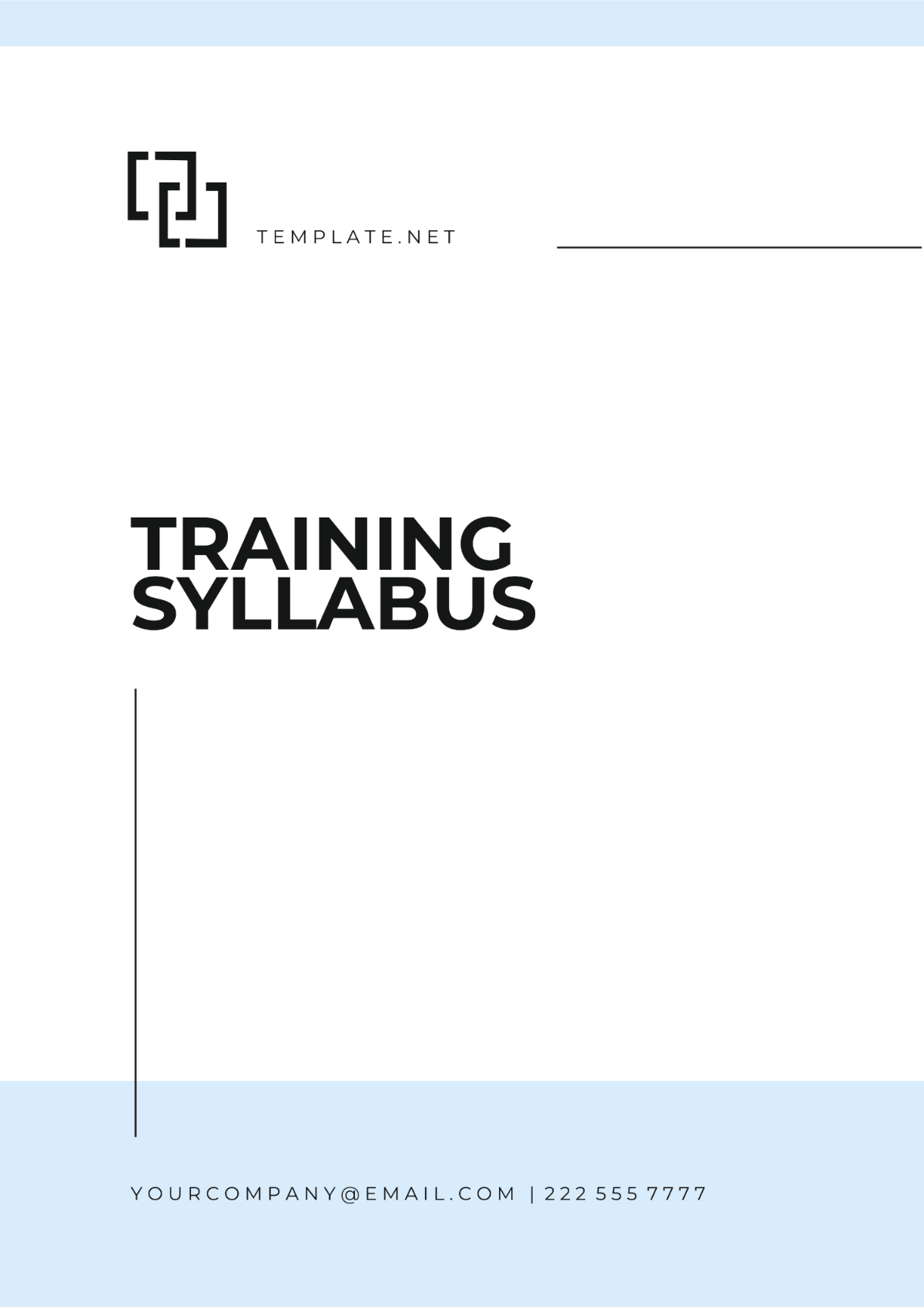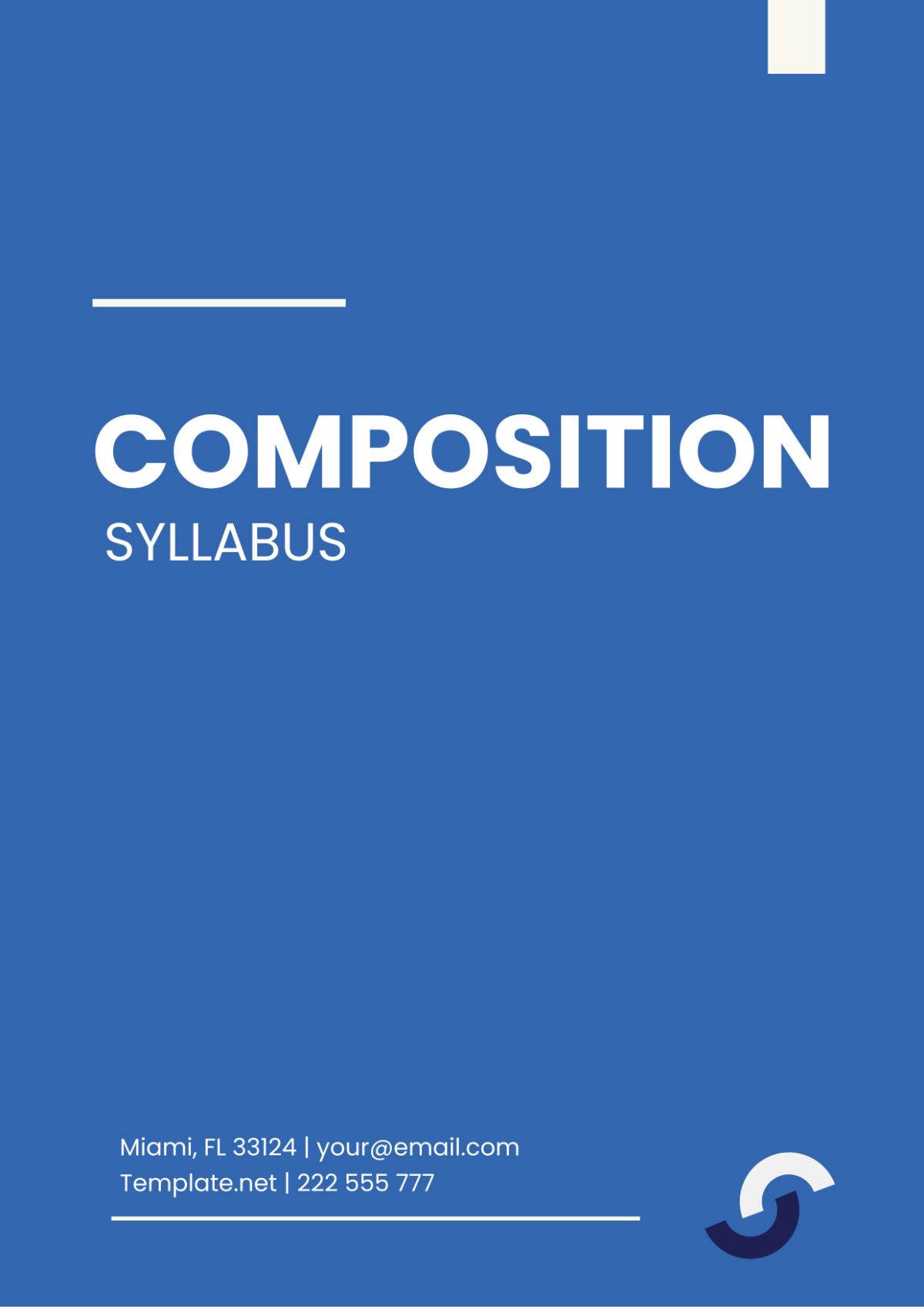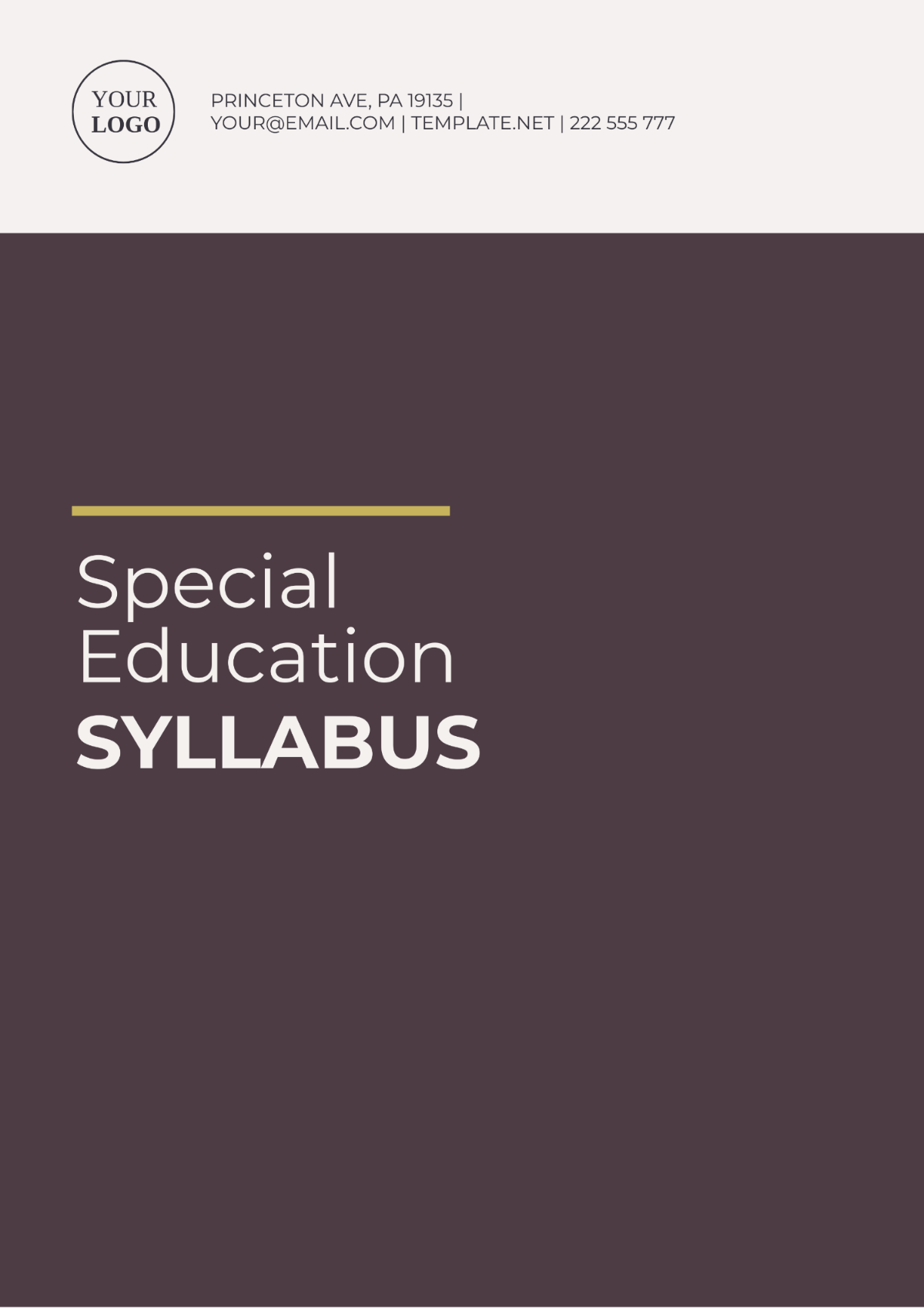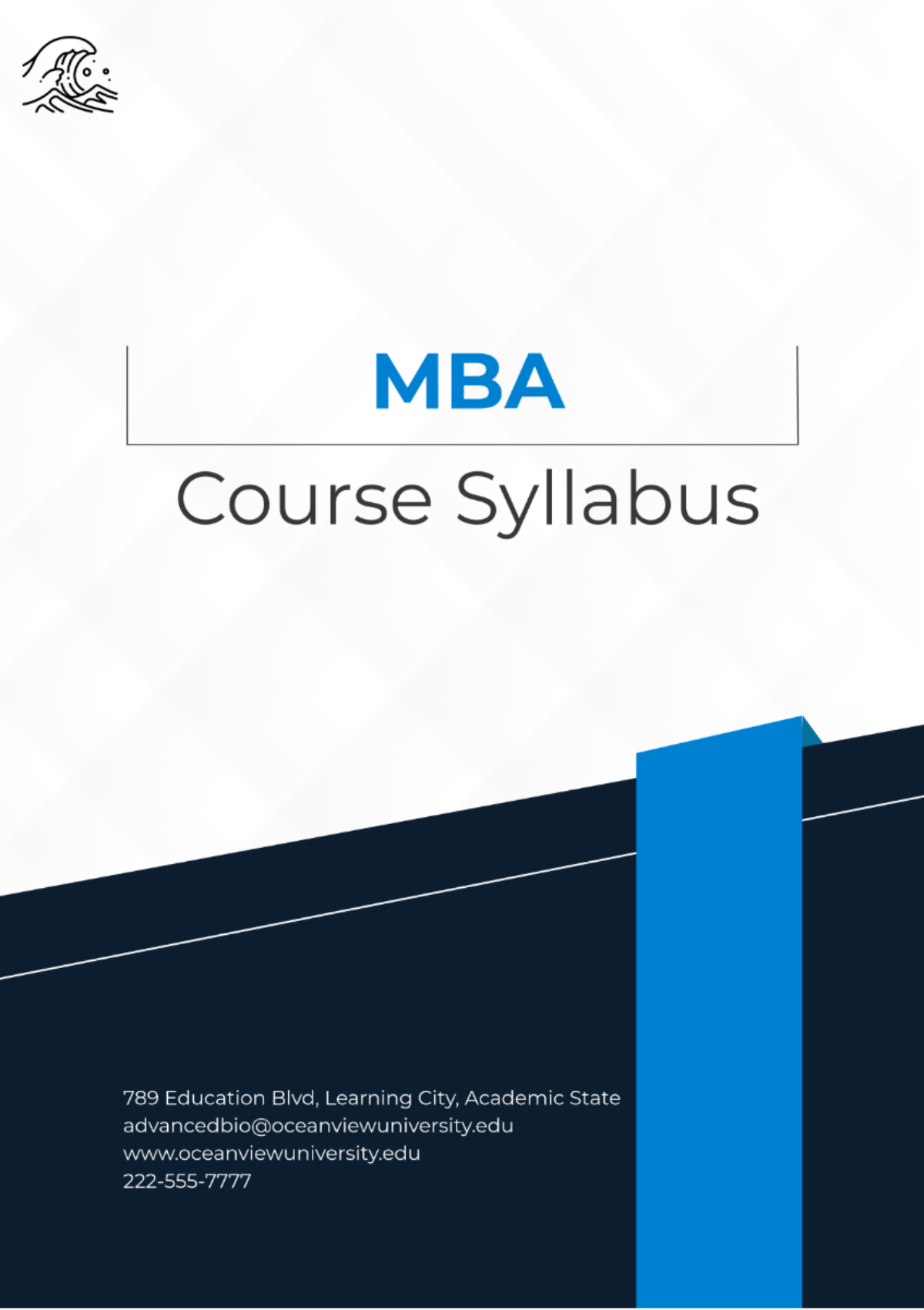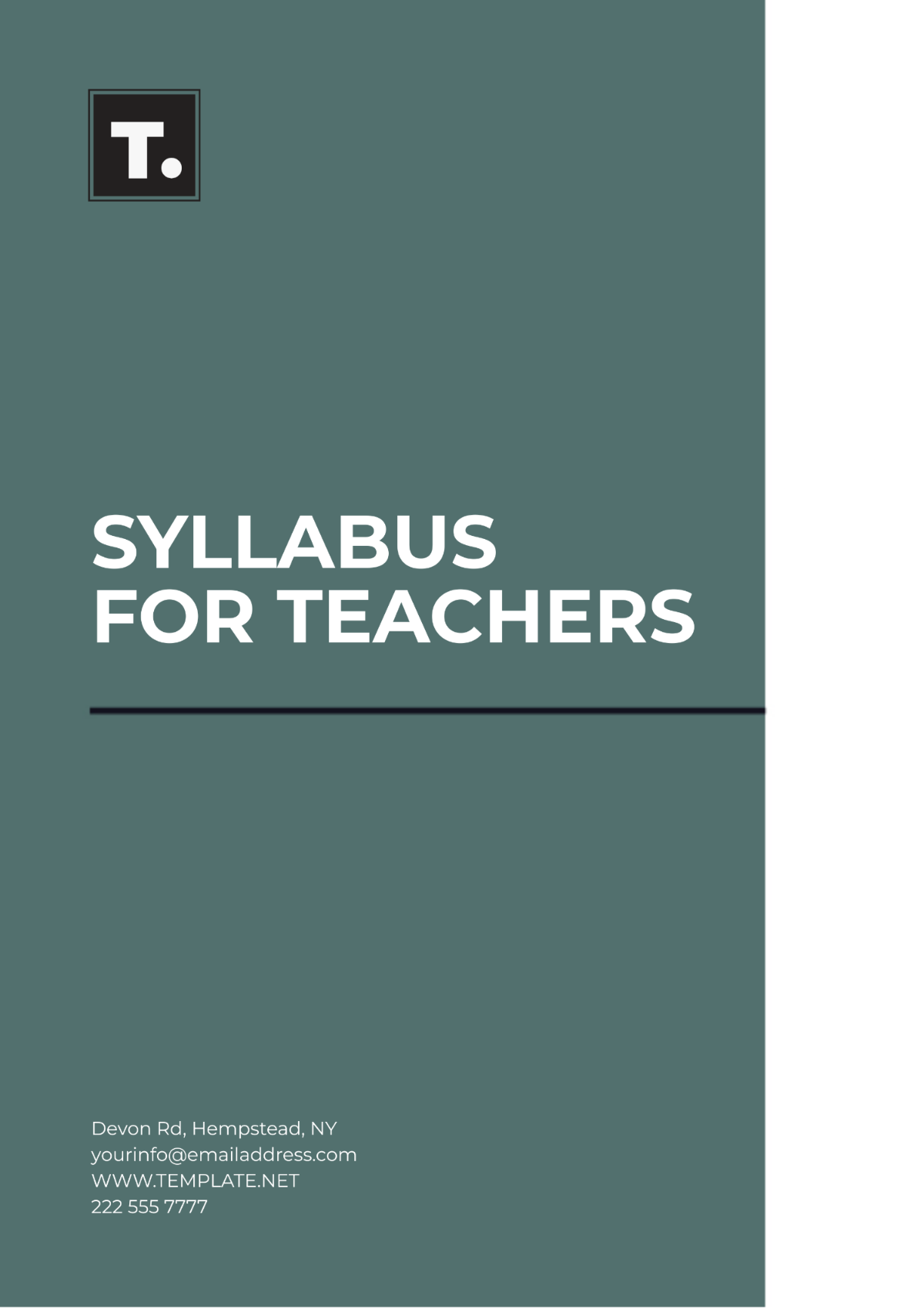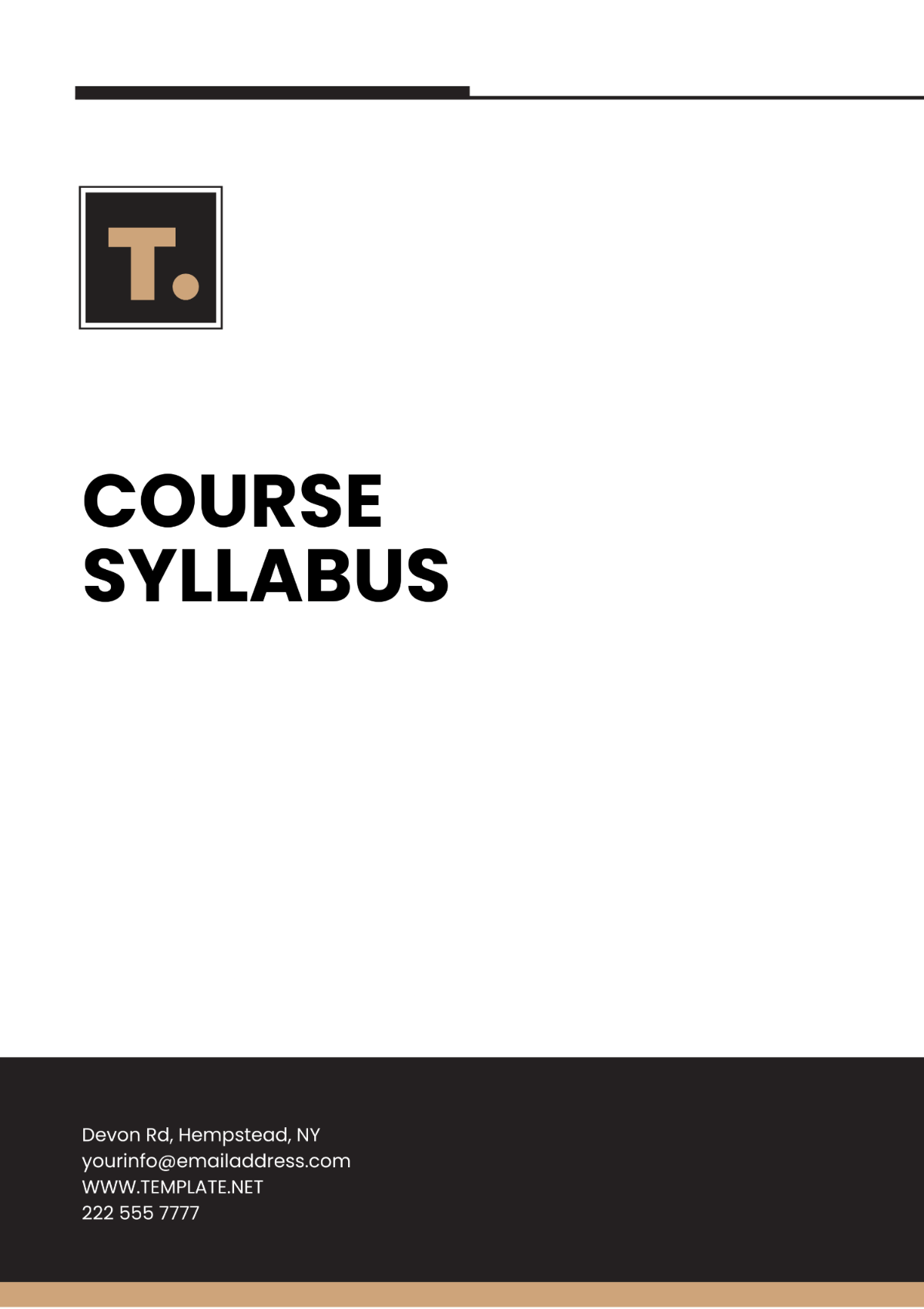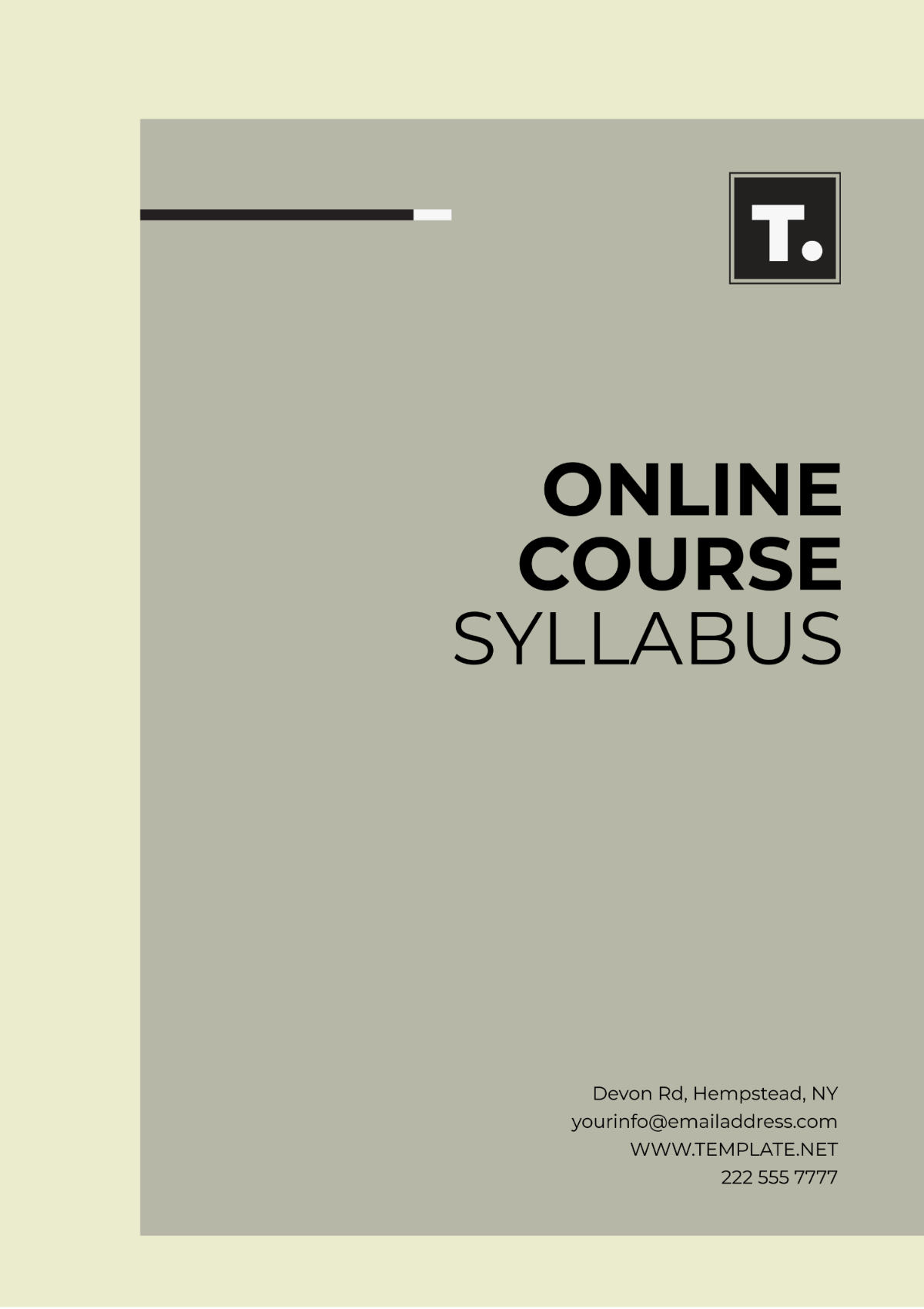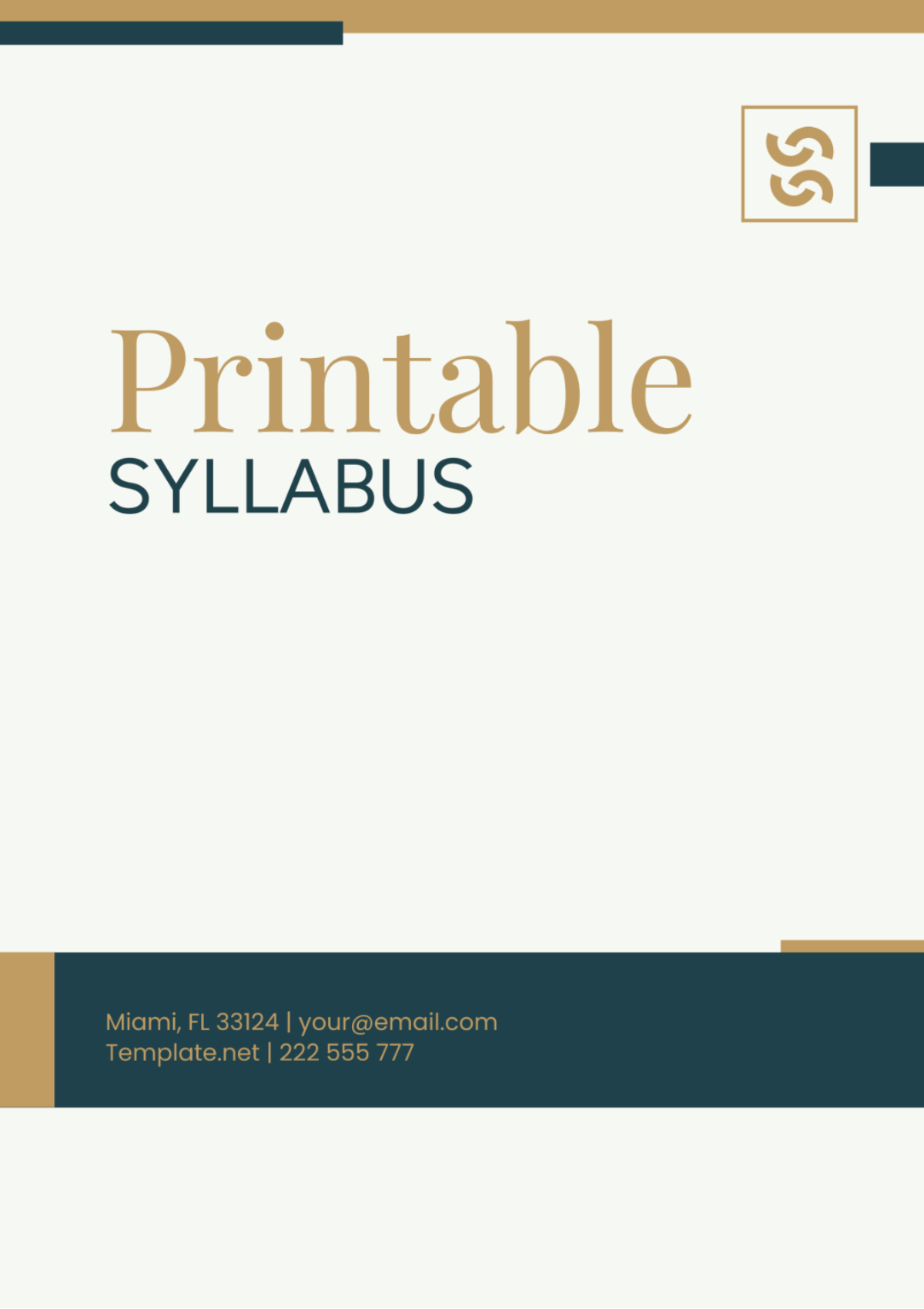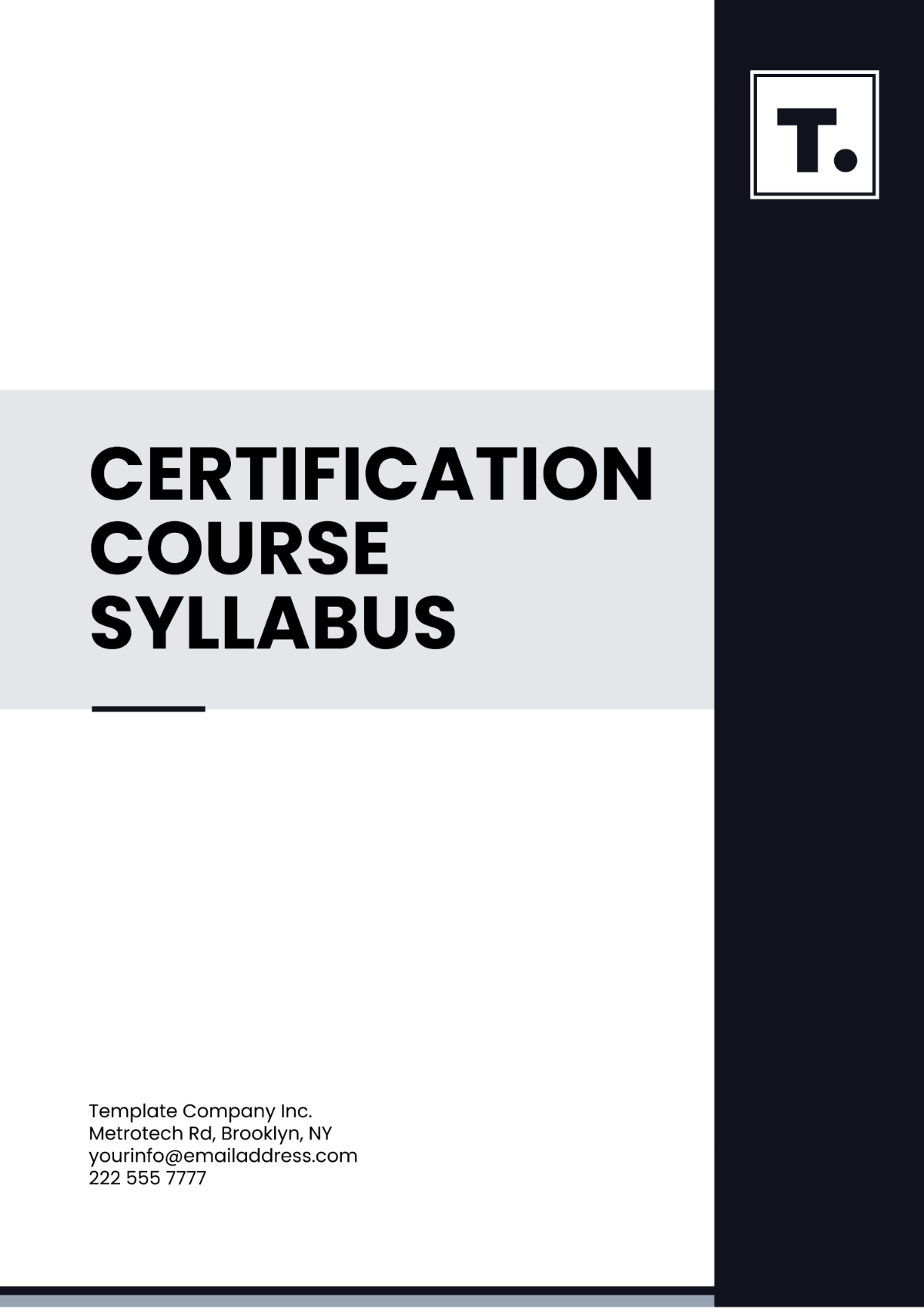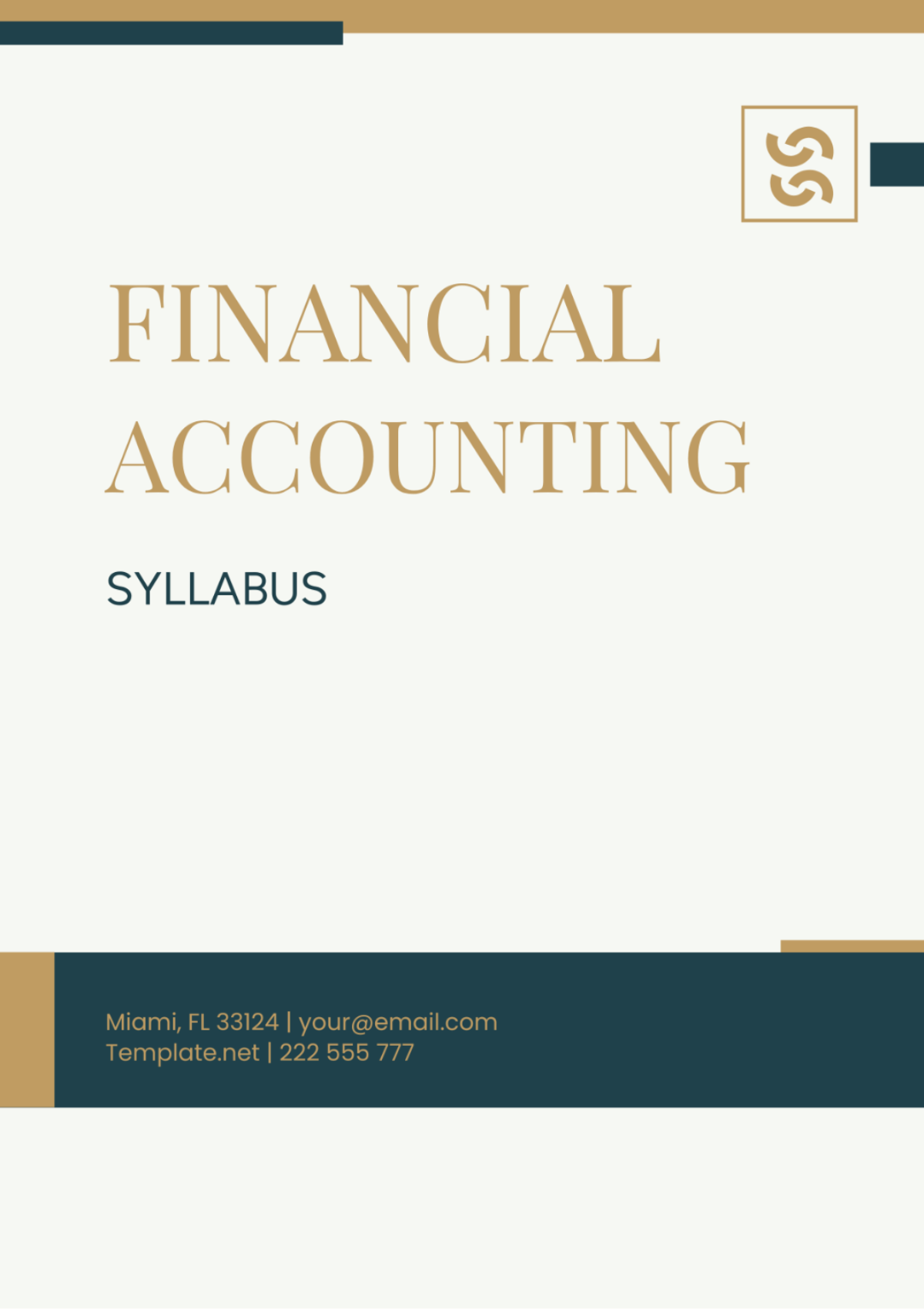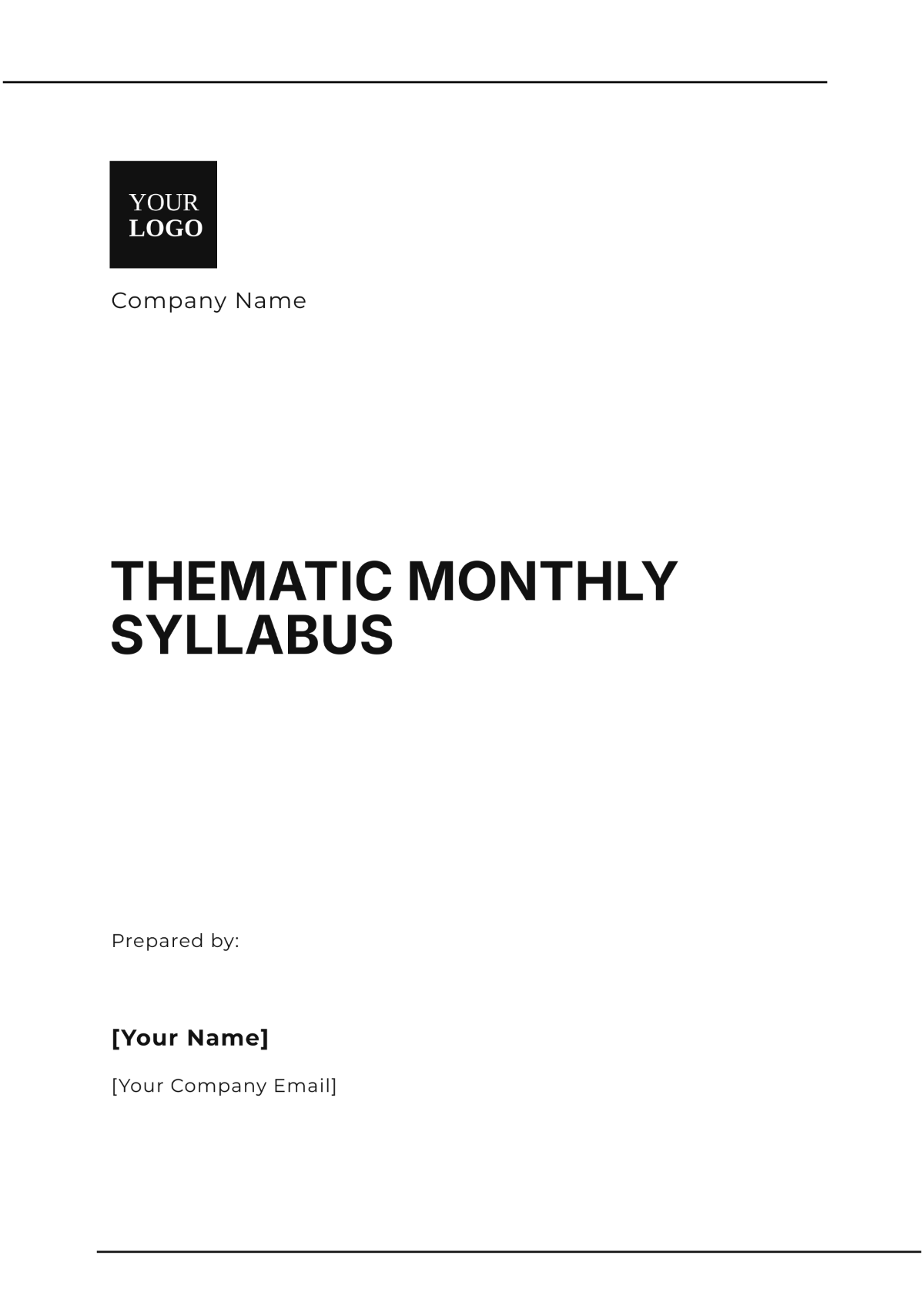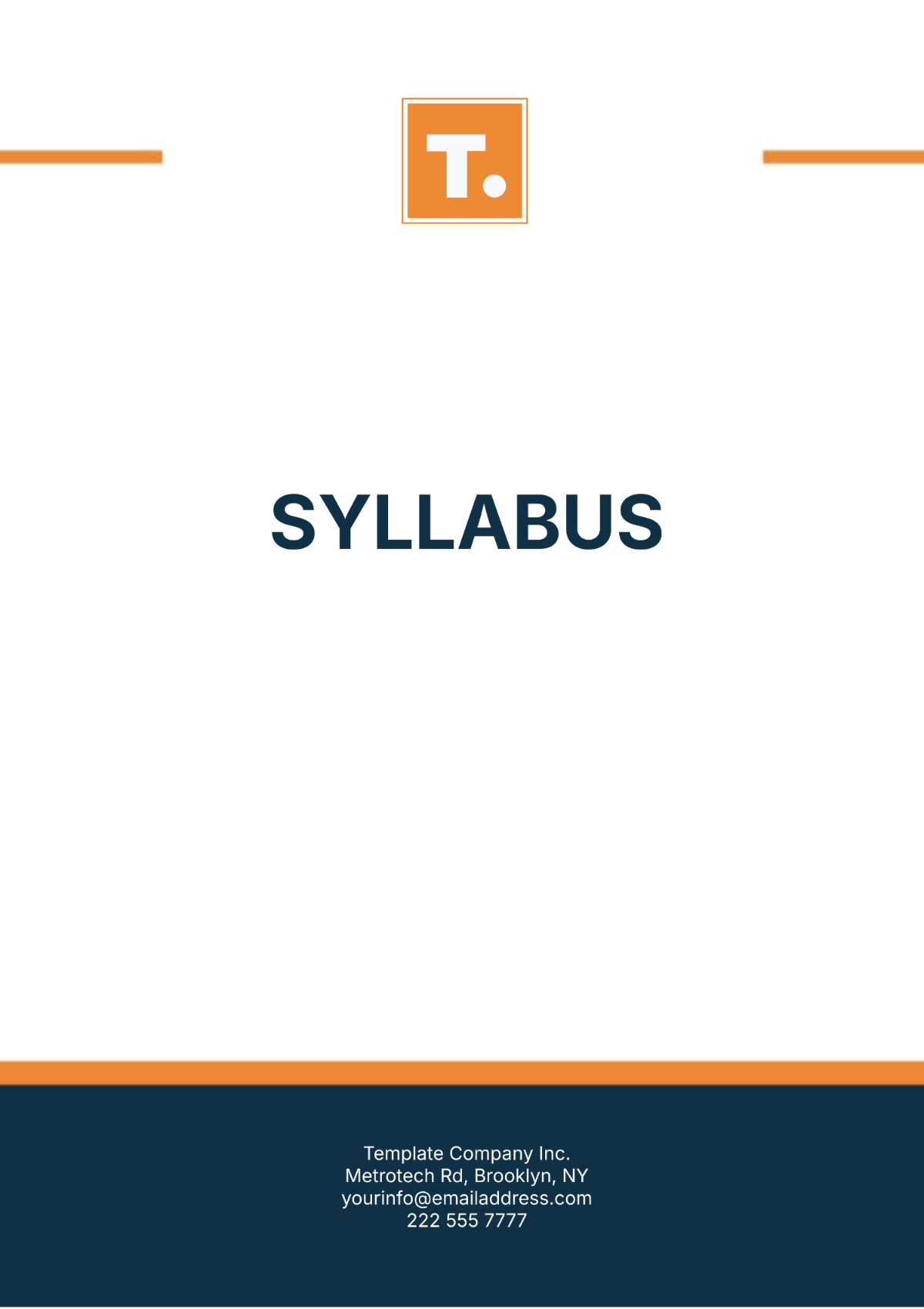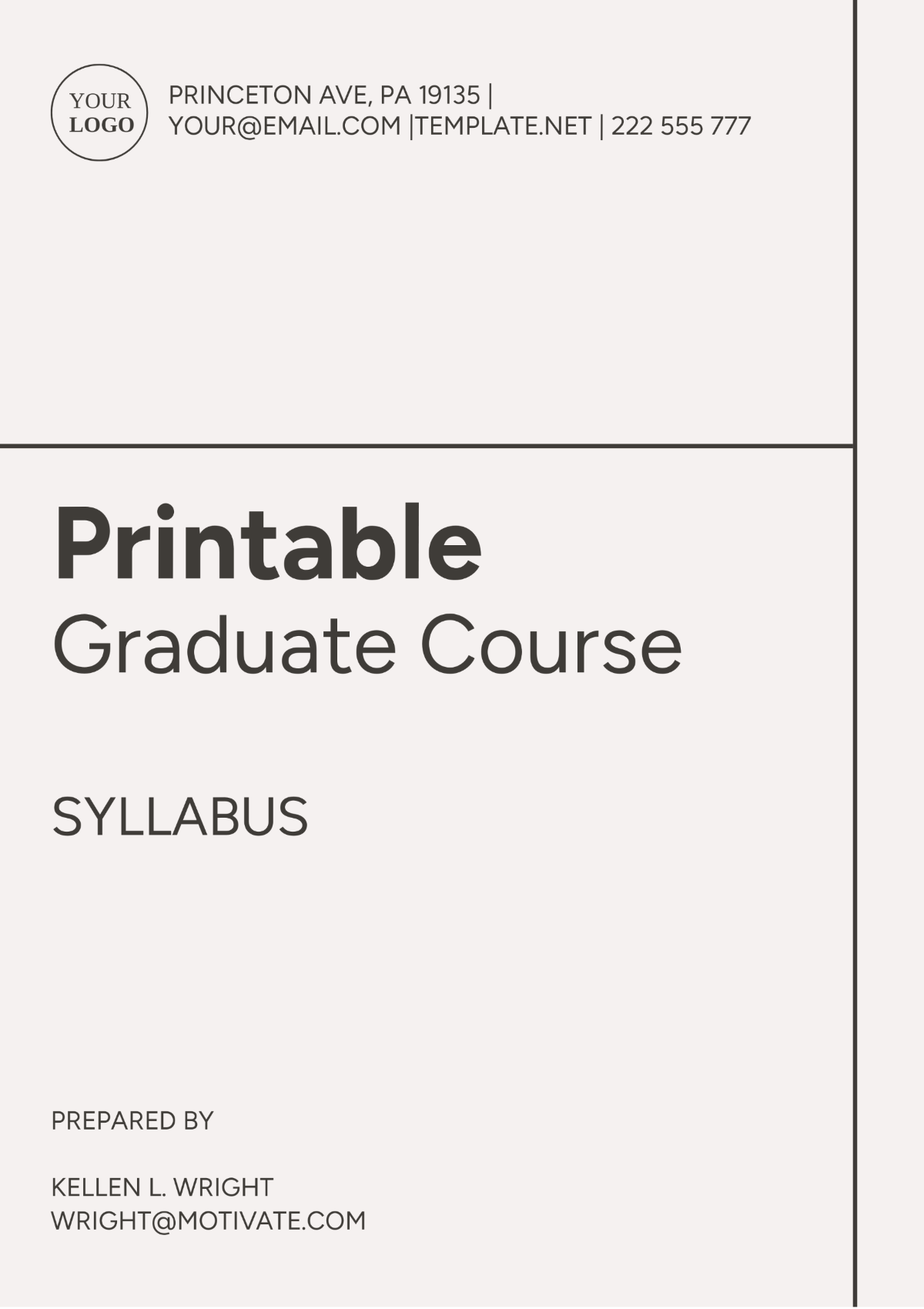Criminology Syllabus
Criminology Course
Course Title | [COURSE TITLE] |
Course Code | [COURSE CODE] |
Instructor Name | [YOUR NAME] |
[YOUR EMAIL] | |
Class Time | [CLASS TIME] |
Class Duration | [DATE] - [DATE] |
1. Course Description
This course provides an introduction to the study of criminology, exploring key theories and concepts. Students will gain a comprehensive understanding of the nature of crime, methods used to measure crime and criminal behavior, and the role of societal and individual factors in crime causation.
2. Instructor Information
Instructor Name: [YOUR NAME]
E-mail: [YOUR EMAIL]
3. Learning Objectives
Understand the basic concepts and theories of criminology
Learn about different types of crime and criminal behavior
Study the statistical methods for measuring crime and criminality
Learn about the societal factors contributing to criminal behaviour
Identify the roles of various criminal justice agencies
4. Course Schedule
Week | Topic | Assignment |
|---|---|---|
1-2 | Introduction to Criminology | Reading Assignment |
3-4 | Types of Crime | Case Study Analysis |
5-6 | Crime Measurement Methods | Data Analysis Task |
7-8 | Societal Factors & Crime | Research Project |
9-10 | Criminal Justice System | Final Exam |
5. Required Reading and Materials
Siegel, L. (2015). Criminology: Theories, Patterns, and Typologies.
McCord, J., & Ensminger, M. (1997). Multiple risks and comorbidity in an African-American population
Sampson, R. J., & Laub, J. H. (1991). Crime and deviance over the life course.
U. S. Department of Justice. (2018). Crime in the United States, 1980 - 2018.
Access to a computer with internet connection for online assignments and research.
6. Assignments and Assessments
Reading assignments: Students will be expected to complete weekly reading assignments and participate in class discussions based on the material.
Case Study Analysis: Students will examine real-life case studies and apply criminology theories to understand the observed criminal behavior.
Data Analysis: Students will use statistical methods to analyze crime data and report findings.
Research Project: Students will conduct independent research on a selected topic in criminology. A written report will be submitted.
Final Exam: A comprehensive final exam covering all topics from the course.
7. Course Policy
Attendance: Regular and prompt attendance is expected and will be recorded.
Late Assignments: Extensions will not be granted unless in exceptional circumstances.
Academic Honesty: Plagiarism or copying of another’s work is not acceptable.
Participation: Contributions to class discussions and teamwork is expected.
Communication: All emails and inquiries will be responded to within 48 hours.
8. Grading Policy
Criteria | Percentage |
|---|---|
Participation | 10% |
Assignments | 40% |
Research Project | 30% |
Final Exam | 20% |
Total | 100% |
9. Additional Resources
Becker, H. S. (1963). Outsiders: Studies in the sociology of deviance.
Akers, R. L., & Sellers, C. S. (2013). Criminological theories: Introduction, evaluation, and application.
Shaw, C. R., & McKay, H. D. (1942). Juvenile delinquency and urban areas: A study of rates of delinquency in relation to differential characteristics of local communities in American cities.
Clear, T. R., Cole, G. F., & Reisig, M. D. (2018). American Corrections.
National Institute of Justice. (n.d.). Research in Brief series. Retrieved from [link]
10. Course Evaluation
Your feedback is crucial for improving the quality of this course. Please take a few minutes to complete the anonymous course evaluation form provided on the course website. Your input will help in identifying areas of strength and areas that may need improvement. Thank you in advance for your participation.
Disclaimer
The syllabus that has been provided serves as a comprehensive guide for the course. However, please note that any changes or modifications to the syllabus could occur throughout the duration of the course. Prior to any changes being enacted, advance notice will be provided by the instructor to ensure all students are aware of the modification.




